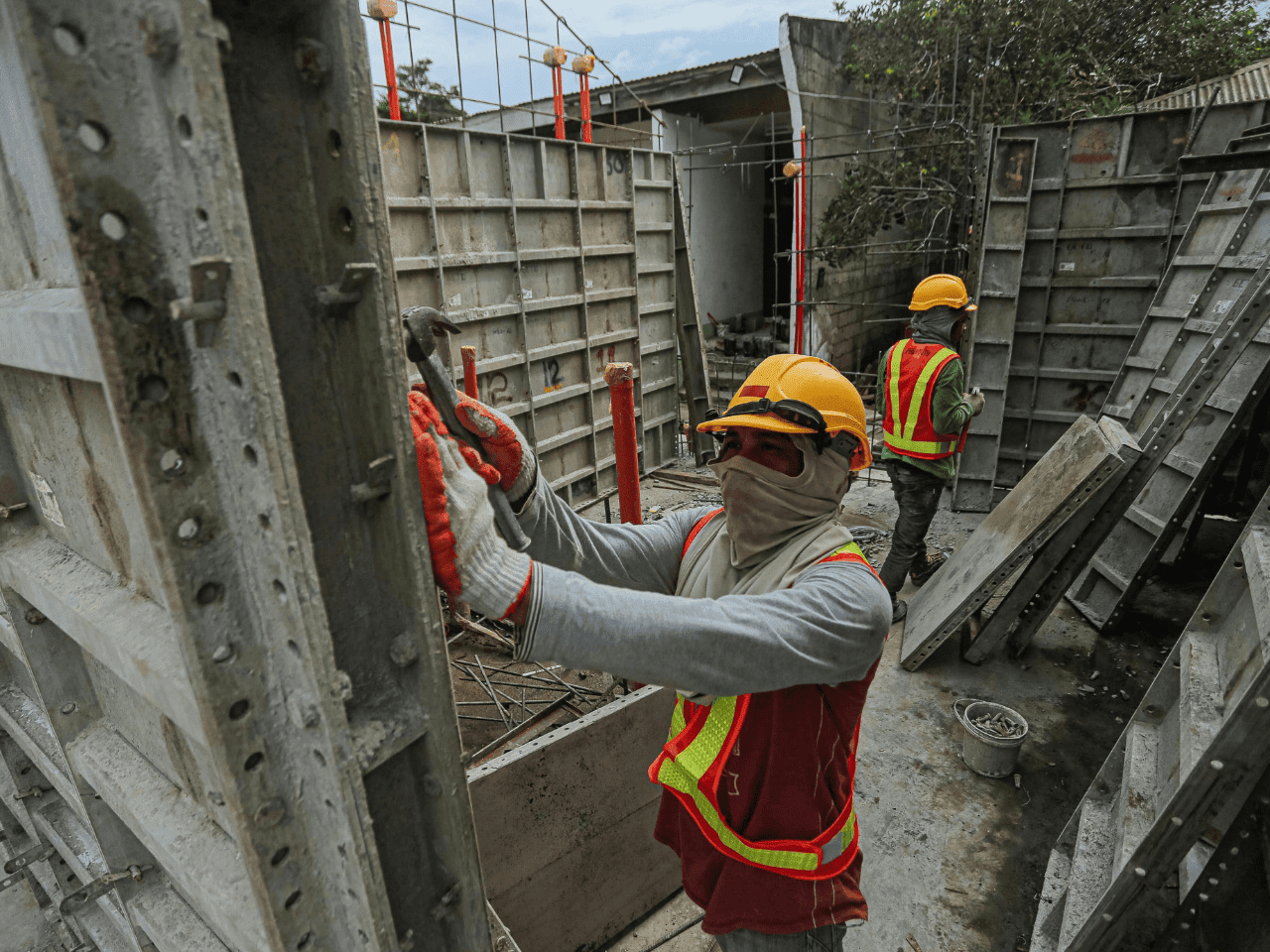The Procurement Act 2023 is now live and it’s essential to stay informed and prepared for the changes.

This comprehensive FAQ guide is designed to provide Procurement Act 2023 guidance and ensure a smooth transition.
Dive in to learn more about the new procurement regulations and how they will effect your procurement procedures.
For 1 to 1 support get in contact with us directly.
Frequently Asked Questions
1. When will the new Central Digital Portal (CDP) be released?
The Cabinet Office will released the new Central Digital Portal (CDP) on February 24, 2025.
2. How will the new regulations affect ongoing procurement events that start before and end after the go-live date?
Procurements starting before February 21 will follow current rules until the event ends and the contract expires.
3. What is a Dynamic Purchasing System/Qualification System?
- Dynamic Purchasing System (DPS): A system mainly used in the public sector, and some utilities, allowing the preselection of a group of suppliers for specific needs. This group is awarded contracts through a mini tender. Suppliers can enter or exit at any time without requiring a contractual process.
- Qualification System: A pre-qualification process, such as the UVDB, allowing suppliers to complete a PQQ once. Subscribed organisations can then search and select bidders based on the PQQ information. Both systems are enabled under current regulations (PCR and UCR).
4. Do the regulations apply to subcontractors working on behalf of a utility to subcontract further services?
The regulations do not directly apply unless the subcontractor fits the criteria covered by the regulations. However, subcontractors can still be impacted, as exclusion factors can flow upwards in the supply chain, affecting the primary supplier’s participation in procurement events.
5. Is it necessary to consider the wider environmental costs and benefits of contracts in the new Act/Regulations?
The Procurement Act 2023 stipulates that Contracting Authorities when carrying out a procurement, must have regard to the importance of the following:
(a) delivering value for money;
(b) maximising public benefit;
(c) sharing information for the purpose of allowing suppliers and others to understand the authority’s procurement policies and decisions;
(d) acting, and being seen to act, with integrity.
Contracting authorities must also have regard to the national procurement policy statement, though this does not apply to private utilities.
Please refer to Schedule 3 Para 1 (3), para 12 and para 13 (9) of PA23 for exact wording.
6. Does choosing a supplier with a smaller carbon footprint count as discrimination against those not measuring their footprint?
The Procurement Act 2023 allows contracting authorities to set conditions of participation related to legal, financial, and technical capacities. The contracting authority will set the requirements in the contract at a level that they deem suitable and proportional. These conditions may include carbon footprint measures, depending on the authority’s requirements in their tender documentation.
Please refer to Para 22 of PA23 for exact wording.
7. How will this legislation affect SME sub-suppliers and their sub-suppliers?
The Act allows contracting authorities to require primary contractors to formally issue contracts to sub-contractors, though it is not mandated. Each contracting authority decides based on the nature of the contract. The new regulations aim to promote best practices, with certain noticing requirements, except for the private utility sector.
8. Will The Procurement Act 2023 affect public procurement in Scotland?
The Procurement Act 2023 covers the whole UK, but does not apply to devolved Scottish authorities. These will continue under existing Scottish procurement regulations. Authorities in Scotland can access UK frameworks and dynamic markets through cross-border procurement provisions. Changes to Scottish regulations are needed to enable devolved authorities to access UK commercial deals.
9. What defines a public and private utility under The Procurement Act 2023?
- Public Authority: Wholly or mainly funded by public funds or subject to public authority oversight without operating commercially.
- Public Undertaking: Subject to public authority oversight and operates commercially.
- Private Utility: Not a public authority or undertaking, and carries out a utility activity. Each contracting authority must determine their classification under the Act’s definitions.
In simple terms if a utility organisation is not funded out of public funds and does not have public authority oversight but have shareholders instead they are a considered a private utility.
Each contracting authority must determine their classification under the Act’s definitions. For exact wording, refer to Part 1, Paragraph 2(2) of The Procurement Act 2023.
10. Is a web link to the Central Digital Platform for registration available?
The Cabinet Office will release the link to the Central Digital Platform will go live on February 24, 2024. The Cabinet Office is considering earlier access, but no plans are confirmed yet.
11. Will signing up allow us to work with utilities companies or any organizations that use Achilles?
Signing up to the UVDB Powered by Achilles will make you visible to approximately 40 regulated utilities (gas, water, electricity, ports, airports, and heat). This visibility will remain similar post-February 23, 2024, but does not extend to other sectors supported by Achilles e.g. Rail. This would require a separate subscription.
12. How will this affect the Verify Audit?
The Verify protocols will remain unchanged during this update to the UVDB community.
13. Will suppliers need to register with the Central Digital Platform and get a Public Procurement Organisation Number (PPON)?
Yes, suppliers will need to register with the Central Digital Platform, obtain a unique identifier or PPON, and add this information to their Achilles profile.
14. Will the Central Digital Platform hold all our company information, policies, and insurance details?
No, the Central Digital Platform will only hold information defined within the Procurement Regulations 2024:
- Supplier’s basic information
- Supplier’s economic and financial standing information
- Supplier’s connected person information
- Supplier’s exclusion grounds information
The UVDB Powered by Achilles will continue to hold company information, policies, and insurance details, which must be kept up to date.
15. Will we be visible to any Contracting Authority issuing new tender opportunities?
For UVDB Powered by Achilles, the proposition remains the same. Buyers may use the new regulations and execute PA23-compliant searches within the system.
16. Will e-procurement providers use our profile on the CDP without requiring additional PQQs?
Upon registration, the system will generate an API key. Suppliers will need to provide this to the e-sender when responding to a Contracting authorities tender notice. Contracting authorities may still ask for further PQQs at their discretion. This is more likely if not using a Qualification system, as part of their tender process
17. Will Silver +Tier 1 members need to upgrade to another tier?
No, your membership tier will remain the same. You will only need to opt-in to be considered for tenders under the new Act and those under Utilities Contract Regulations (UCR) 2016.
18. Can you provide guidance on the pertinence of the PA23/QUDM/Central Digital Platform, for a Canadian Supplier?
Any supplier who wishes to participate in any procurement activity with any contracting authority that is captured by the Procurement Act 2023 (England, Wales & N. Ireland) will need to register on the Central Digital platform(CDP), if you do not register now it will be a requirement of the engagement process for an event. If you wish to engage with utilities and private utilities who are either using the Qualification System under Utility Contract Regulations 2016 (as allowed by the Transitional and Savings Regulations 2024) or who intend to use the Qualifying Utilities Dynamic Market (QUDM) then membership of the UVDB will be optimal for maximum exposure (shop window). As part of the establishment of the UVDB QUDM, we need suppliers to register on the CDP and provide the unique identifier allocated to your organisation. This is a mandatory requirement placed on the UVDB community by the Procurement Act 2023.
19. How do we know if we’re registered on CDP?
Registration is not automatic, someone in the company must enter the company details into the CDP. If you attempt to register your company and someone else has already done so the system will prevent you from progressing further and will ask if you wish the system to notify the ‘administrator’ of your company details that you are attempting to register and establish a link between the two of you. It will not tell you who the administrator is due to GDPR Regulations, but will provide your contact details to the administrator for them to reach out to you.
20. If a company is based outside the UK and such a company is considering setting up a base in the UK, can such a company register with the Central Digital Platform?
Yes – companies outside the UK can still register on the CDP. If you intend to register with the UK companies house at some point in time later you will need to also register that entity in the CDP as well.
21. PA23 isn’t applicable in Scotland so would you recommend we opt in or opt out?
Whilst PA23 is not applicable in Scotland, where a contracting authority also operates in the rest of the UK and wishes to run a procurement event including those other contracting authorities they will be obliged to use the Central Digital platform, and the UVDB QUDM if they choose to do so.
In addition by opting in you will also expand your shop window for other contracting authorities to see you.
22. Will the new change affect other pre-qualifications a company already holds?
This really depends who you engage with. If they are captured by the Procurement Act 2023 they may well be considering a change to their process. In all events they should be transparent in their future requirements.
23. How does a company let Achilles know they’ve registered to the CDP?
Completing the additional question in the questionnaire and adding your PPON number to the Key Company Information section where it is asked for and it will then be captured by our system and we will be able to add your registration into the QUDM noticing
24. Can you share the list of Contracting Authorities that use only the UC(S)R16? and the list of those who already opted to use PA23?
This listing of which contracting authorities is registered for which set of legislation is available on the Achilles website. Whilst some contracting authorities have been included in the QUDM noticing, they may not yet be fully using the process as the transition period for Private Utilities runs until February 2029. However in all their tender documentation they should be making it very clear which set of legislation the event is being conducted under.
25. To what extent Achilles will be integrated/generate notifications that will be entered into the UK government service Find a tender under the PA23?
Achilles will be publishing the Notices associated with the UVDB community, but will also still be operating the notice product whereby we notify suppliers of notices that have been published that are associated to the code selection they have made.
26. Is there a fee to register on to the digital platform?
No there is no fee to register on the central digital platform.
27. Will all completed question answered remain filled in and suppliers only have to complete the new questions? Or do a new questionnaire need to be completed from scratch?
All existing questions will remain populated, unless you need to make a change. Any new questions will only need to be answered once, unless you need to make a change.
28. If you have a parent company who register on the digital platform?
This will depend on which entity will have the contractual obligation and have the contract awarded to. In any event you can declare a parent company as a connected person during your registration process.
29. If your company is based in the UK, do you still need to register on the Central Digital Platform? Is that where the PPON number comes from?
Yes, any company wishing to participate in a procurement event run by a Contracting Authority which is captured by the Procurement Act 2023 will be required to register on the Central Digital Platform.
The platform will give your organisation unique identifiers – one is generated from your registration from the list of registers populated in the central digital platform e.g companies house registration, and a PPON number. If you are an overseas supplier you will only have the PPON number issued to you.
30. Who will let us know when the CDP is available and that we need to register? Will Achilles let us know?
The CDP is now live and emails have been issued to suppliers on the UVDB to that effect by Achilles Information, with the appropriate links for both registration and training media published by the Cabinet office.
31. If you opted out by mistake, how can we opt back in?
You can simply go back into your questionnaire and amend your selection and the system will pick that change up.
32. Is this a one-time question or can you retrospectively opt-in?
You can opt in at any time. We would obviously encourage you to opt in earlier rather than later to ensure you are visible to all users whether they are using UCR 2016 or PA23.
33. Is the PPON only issued to overseas companies?
For the most part yes – UK based suppliers will utilise one of the numbers from the registered listed by the Cabinet Office but the system will still generate a PPON number as well and this is what you add to the Achilles questionnaire.
34. Is there an “opt-in” section in the key questions, or is it covered when you answer “Yes” to the question about being considered by utilities using the QUDM for procurement under the UK Procurement Regulations 2024?
Yes the opt-in question is:
“Does your company want to be considered by utilities using a Qualifying Utilities Dynamic Marketplace (QUDM) to support their procurement process? You must answer Yes to this question to be considered by utilities who choose to use UVDB as their QUDM once the UK Procurement Regulations 2024 comes into effect”
Useful resources:
Procurement Act 2023 (legislation.gov.uk)
The Official Transforming Public Procurement Knowledge Drops – GOV.UK (www.gov.uk)
Transforming Public Procurement – GOV.UK (www.gov.uk)
Transforming Public Procurement (google.com)
Central Digital Platform Fact Sheet
Our Achilles Academy offers Procurement Courses on a number of topics including our upcoming Regulated Procurement Academy focusing on the new Procurement Act


